Posted date
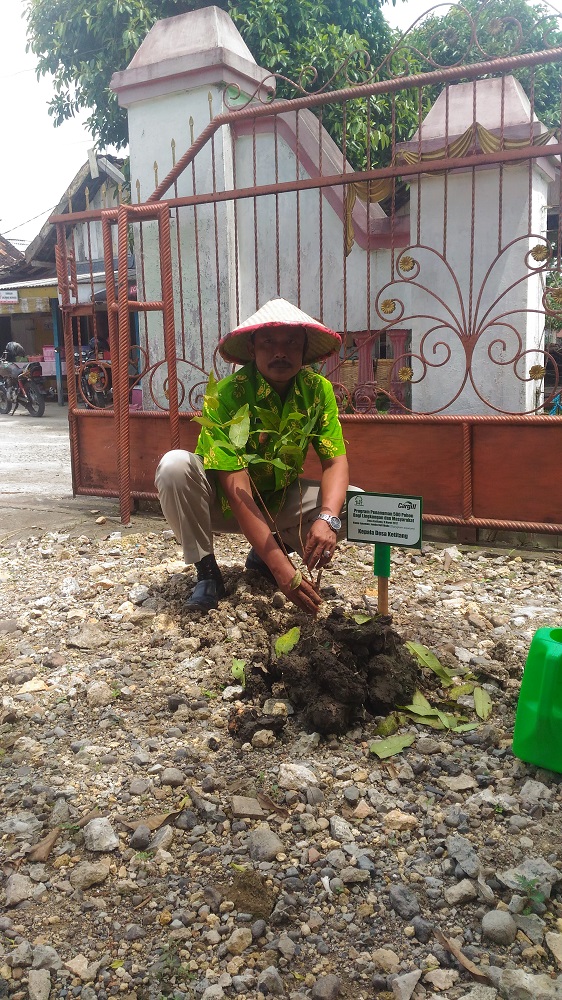
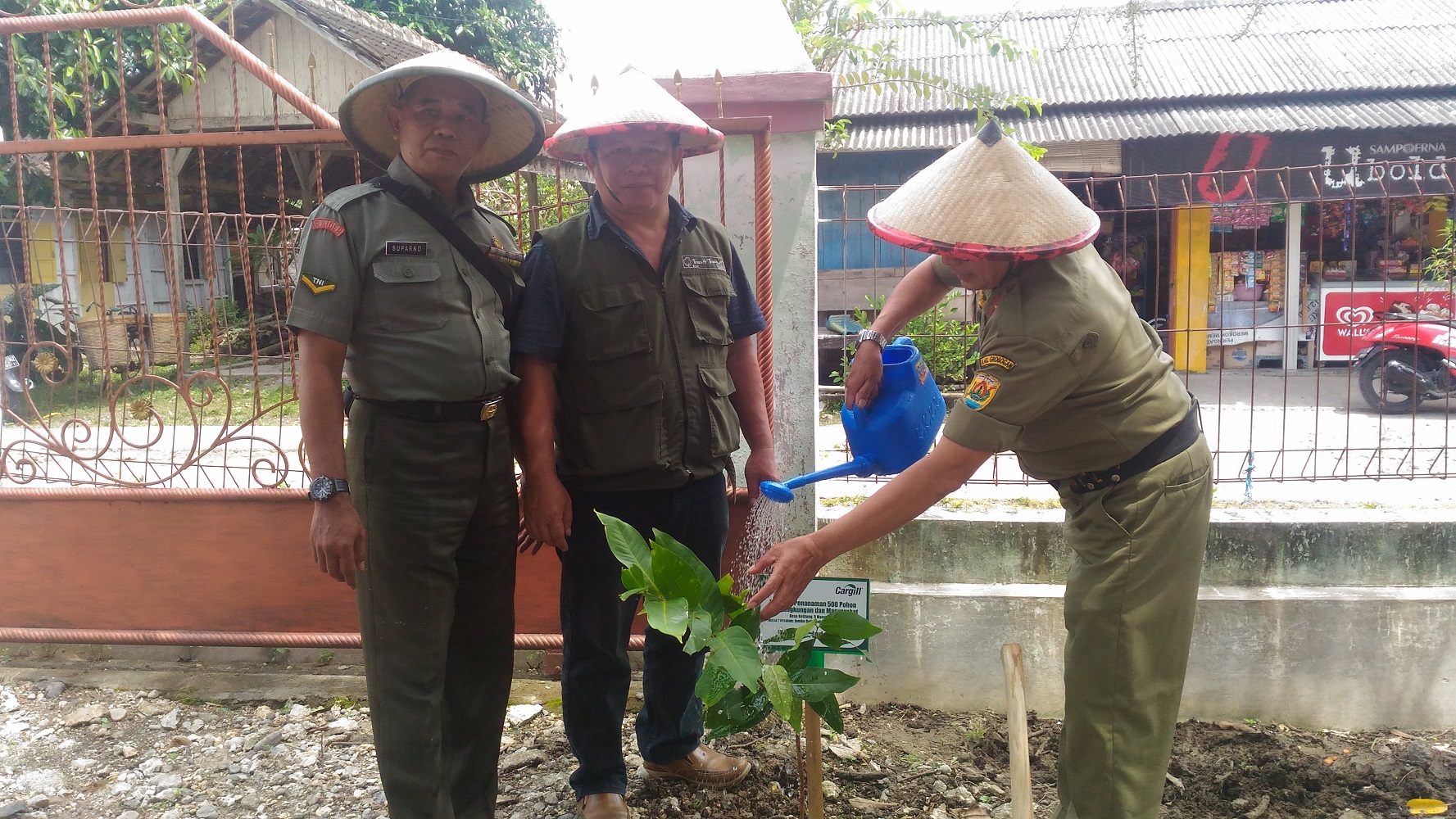
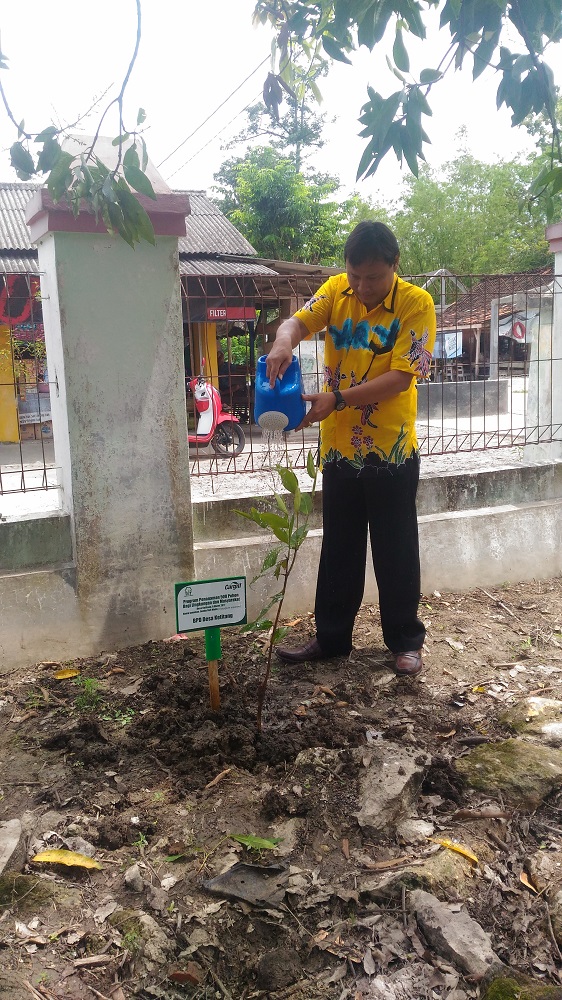
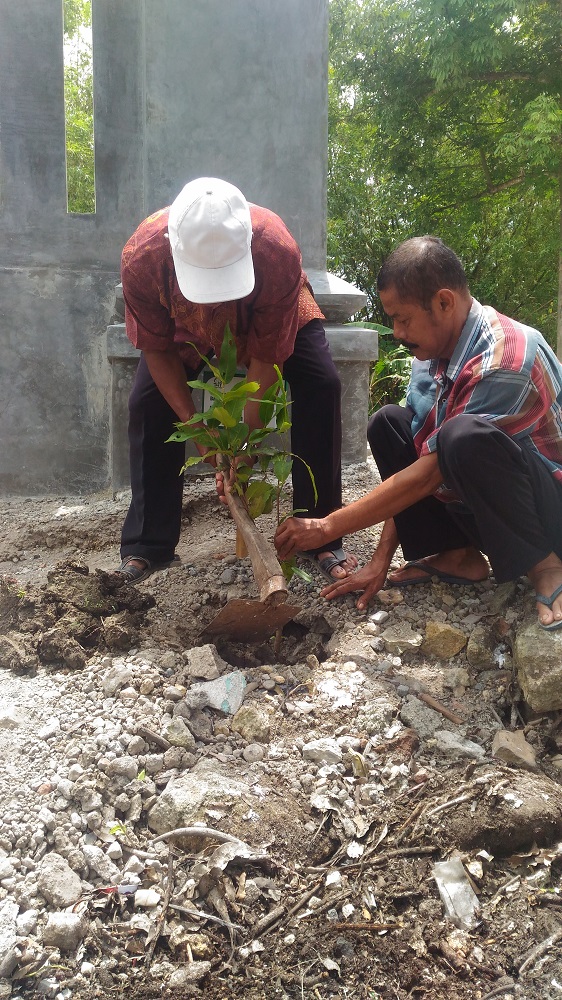
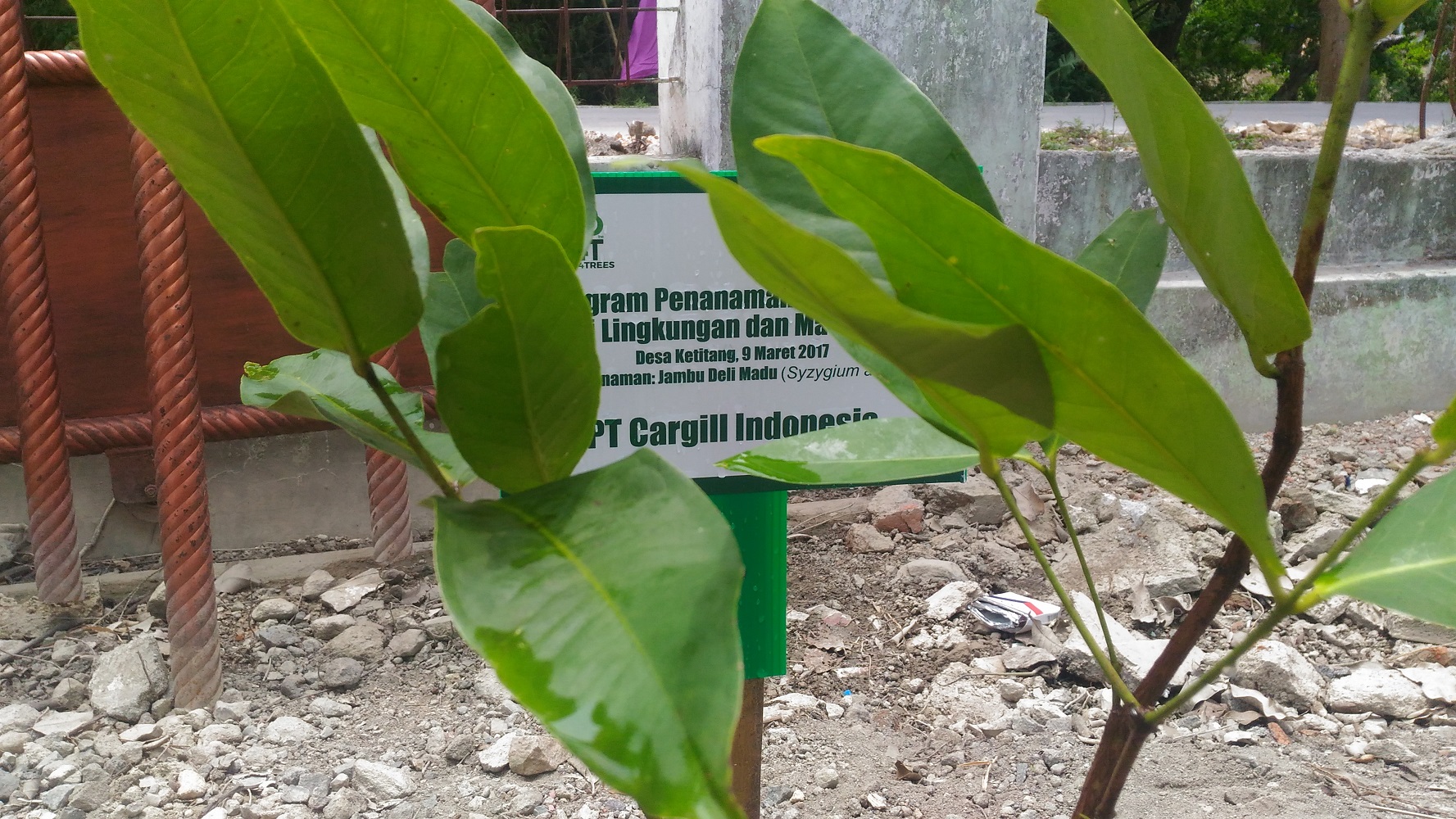
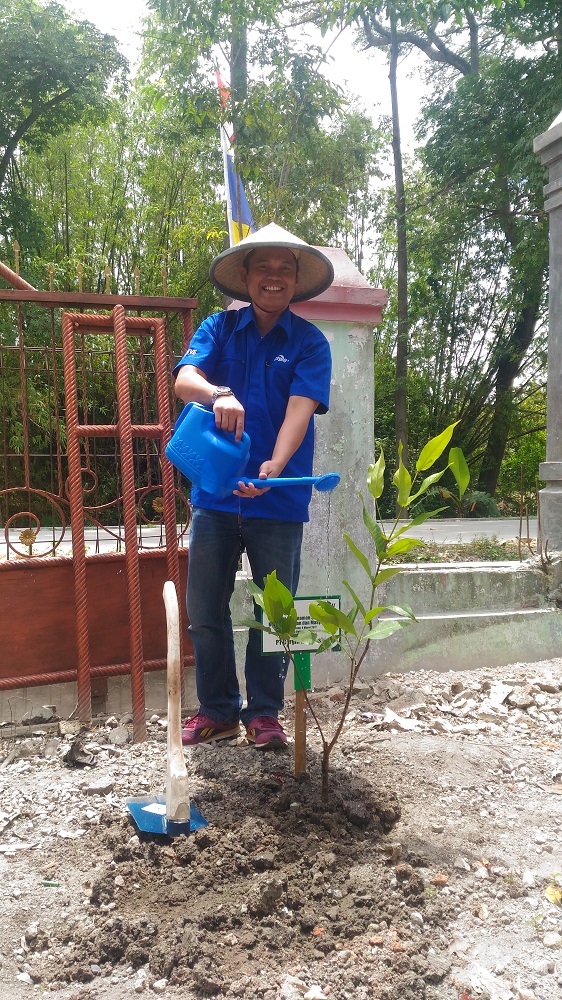
Same place, new trees.
PT Cargill Indonesia Branch Purwodadi once again shows their commitment in taking care environment surrounds. It started in Ketitang Village, Godong, Grobogan District, where their factory is located. Last year in 2016, 1000 Mahogany were planted alongside the main street of the village. This year, Cargill team wanted for something different with more impacts and personal.
It is always an interesting journey to finally decide fruit trees to be planted in Ketitang between Cargill and Trees4Trees. Fruit trees chosen is Jambu Deli Madu (Syzygium aqueum), the height is up to 4 meters, the fruit colour is green, watery and bigger than another normal Jambu fruits. The fruits of Jambu Deli Madu is still on high demand since it is one of the sweetest Jambu variety, Madu refers to honey that describe the taste.
500 trees of Jambu Deli Madu planted in Ketitang is welcomed by community and the head of the village. During ceremony, Wage Setyono Head of Ketitang, said “This trees give to us, we really appreciate this. Last year we received 1000 trees of Mahogany, and this time Jambu Deli Madu. It is good for us to start educating ourselves about caring the environment. I believe this will teach us to participate creating comfortable place to live. I believe when we treat the environment right, they will treat us right back too, and the fruits this time has economy impacts”.
Same statement also came from Rudy Setiarachman of PT. Cargill Indonesia Branch Purwodadi representative, he said that through CSR they really want to show their care seriously, not only some regular activity.
The ceremony of Jambu Deli Madu trees planting was held in March 9th 2017, attended by Head of Ketitang Village Wage Setyawan, official government of Grobogan district representative Joko Supriyanto, and another official governments of Grobogan district.
500 trees of Jambu Deli Madu are planted in all streets possible, in 2 sub-villages of Ketitang: Ketitang and Nunjungan. 300 trees are planted in Ketitang sub-village in 5 areas and the rest are planted in Nunjungan sub-village in 3 areas.




